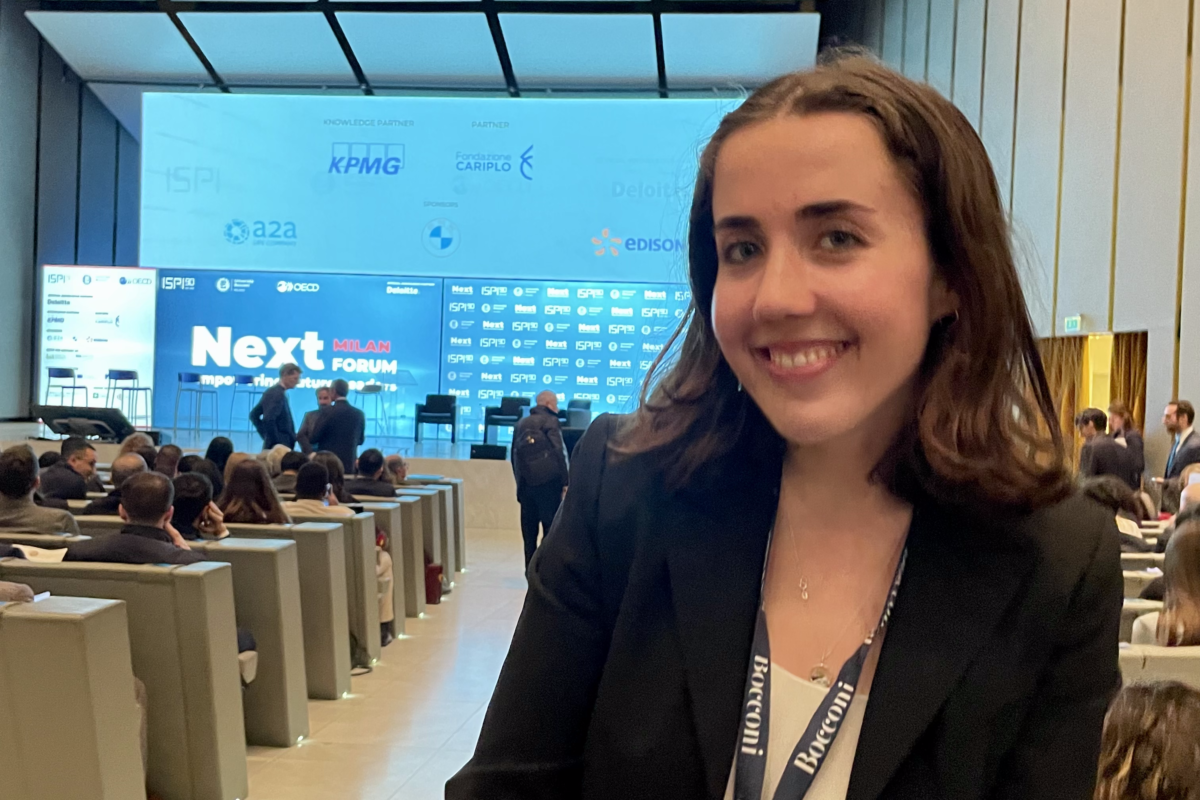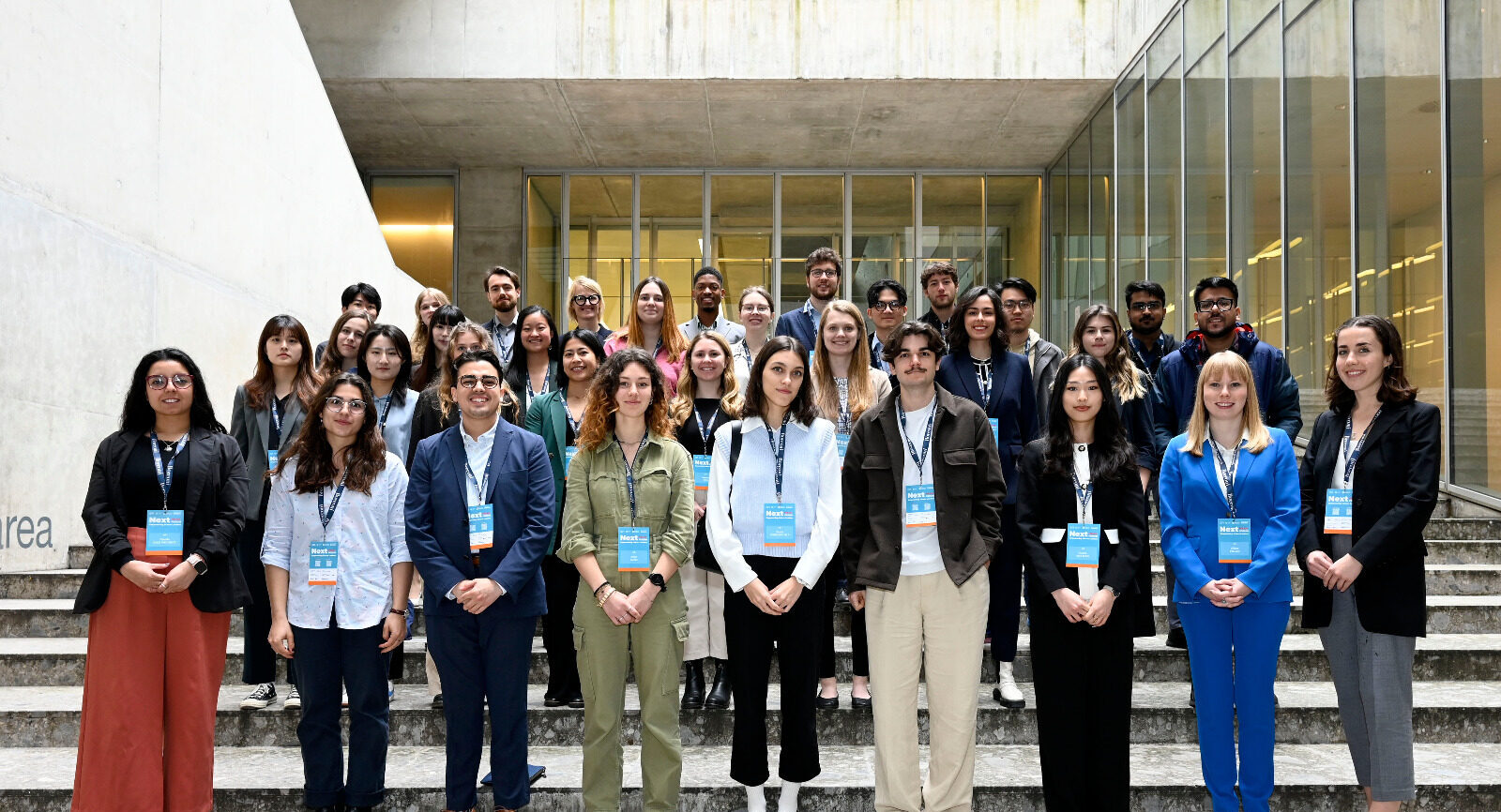By Marie Sherman
“Higher education provides a space to foster critical thinking and conversation; it offers the opportunity for a diverse community to come together and build connections; it allows people to choose their own path; students, staff, and professors are faced with the opportunity to challenge prior beliefs and uncover new forms of knowledge…”
This list of ideas is a highlighting of responses provided by a room full of university students from around the world when prompted with the question, “why is higher education important?”
The room of students providing these responses exemplified these answers in itself. The student delegates represented universities in the U7+ Alliance, the first ever international alliance of university presidents who work towards “addressing global challenges in a multilateral context,” The presidents will gather for their annual summit, this year hosted by Bocconi University, on April 11-12, 2024. Like in previous years, they will deliver a statement to the G7, committing themselves to action on a pressing global issue.
In anticipation of the Summit, I was fortunate to represent the University of Toronto as part of the delegation aiming to integrate student voices into the U7+. The delegation was a component of a larger youth leadership conference, the NEXT Milan Forum, hosted at Bocconi University on March 18-19. In addition to the U7+ workshops, I also attended plenary sessions as part of the larger forum, where professors, scientists, researchers, CEOs, economists, authors, and government officials all came together to discuss their work around some of the most complex challenges our world is facing, including: climate change, peace and security, AI and digital media, and gender equity.
As you can probably imagine, this was a lot to tackle in only two afternoons. However, learning from the speakers’ vast expertise and current efforts to address these issues holistically, in a room full of young people in the early stages of their own careers was encouraging. To know that each of us would be leaving the conference holding a deeper knowledge of these complexities and their interconnections, with the ability to take this foundation of information into our own fields, provided me with a sense of reassurance for the future of our world.
The most inspiring component of my time at the U7+ was the discussions and work with my fellow students. Coming from institutions across the world—University of Edinburgh, Osaka University, Indian Institute of Technology Bombay, University of Bonn, Northwestern University, Université de Montréal, University of Michigan, University of the West Indies, just to name a few—meeting and collaborating with these students was certainly the highlight of my trip. We spent much of the conference brainstorming, writing, and creating these videos, in efforts to create a product that would be impactful and thought provoking for our university presidents.

I deeply appreciate the work that the U7+ Alliance is doing to address these critical issues of our time. Higher education serves as a producer of knowledge, where all those involved are provided the opportunity to open their minds to issues and different ways of thinking and being, whilst learning how to improve the systems that are in place. As the U7+ alliance looks to increase access to and success within higher education, a vital consideration is the ways knowledge is presented, taught, valued, assessed, and shared.
In responding to the question posed at the beginning of this post, “why is higher education important,” the level of engagement I felt through being a contributor to this collaboration prompts another answer from me: higher education spaces serve as vessels of hope, as places where we can envision what’s possible. In their greatest form, these spaces allow students to recognize the potential they hold in creating a better world.
In the challenging times we are living in, finding and creating these points of hope is crucial. I feel fortunate for this first-hand opportunity I had to be part of such a transformative space, and plan to carry this strong sense of hope forward into both the academic and professional spaces that I am, and will be, part of.
Marie Sherman is an MEd Candidate in Educational Leadership and Policy at Ontario Institute for Studies in Education (OISE), University of Toronto. She is enrolled in the Comparative, International and Development Education Collaborative Specialization. Her research is focused on equity and inclusion, community development, peace education, sustainability, and the intersections within these areas.
